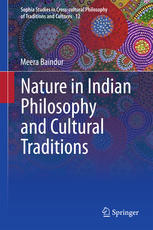

Most ebook files are in PDF format, so you can easily read them using various software such as Foxit Reader or directly on the Google Chrome browser.
Some ebook files are released by publishers in other formats such as .awz, .mobi, .epub, .fb2, etc. You may need to install specific software to read these formats on mobile/PC, such as Calibre.
Please read the tutorial at this link: https://ebookbell.com/faq
We offer FREE conversion to the popular formats you request; however, this may take some time. Therefore, right after payment, please email us, and we will try to provide the service as quickly as possible.
For some exceptional file formats or broken links (if any), please refrain from opening any disputes. Instead, email us first, and we will try to assist within a maximum of 6 hours.
EbookBell Team

0.0
0 reviewsWorking within a framework of environmental philosophy and environmental ethics, this book describes and postulates alternative understandings of nature in Indian traditions of thought, particularly philosophy. The interest in alternative conceptualizations of nature has gained significance after many thinkers pointed out that attitudes to the environment are determined to a large extent by our presuppositions of nature. This book is particularly timely from that perspective.
It begins with a brief description of the concept of nature and a history of the idea of nature in Western thought. This provides readers with a context to the issues around the concept of nature in environmental philosophy, setting a foundation for further discussion about alternate conceptualizations of nature and their significance. In particular, the work covers a wide array of textual and non-textual sources to link and understand nature from classical Indian philosophical perspectives as well as popular understandings in Indian literary texts and cultural practices. Popular issues in environmental philosophy are discussed in detail, such as: What is ‘nature’ in Indian philosophy? How do people perceive nature through landscape and mythological and cultural narratives? In what ways is nature sacred in India?
To make the discussion relevant to contemporary readers, the book includes a section on the ecological and ethical implications of some philosophical concepts and critical perspectives on alternate conceptualizations of nature.